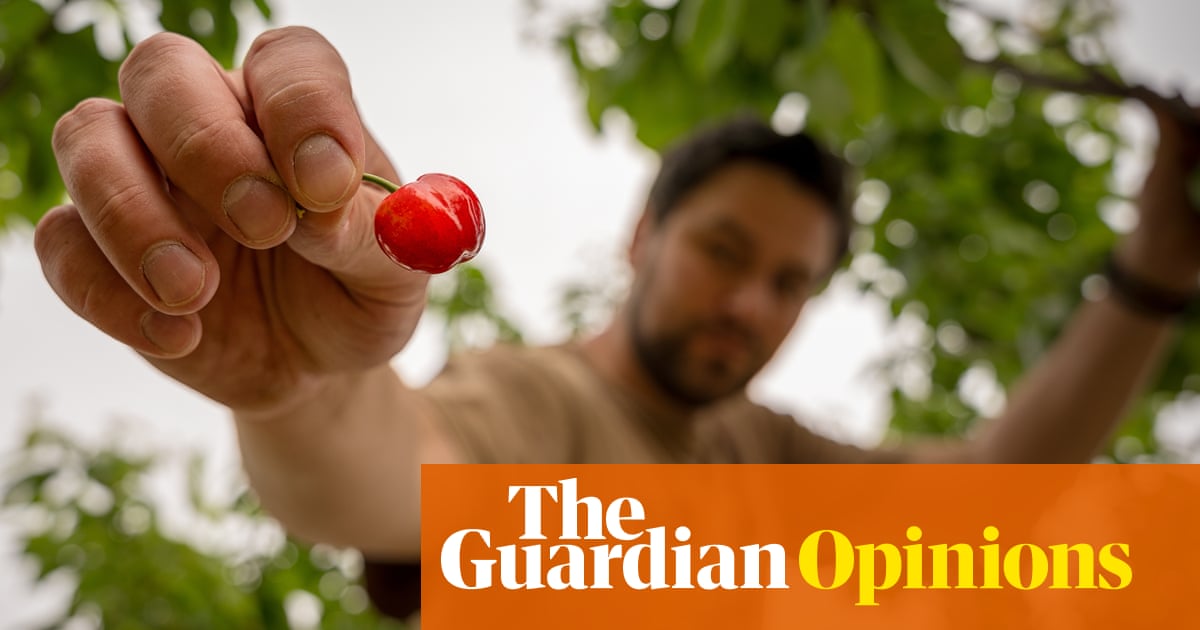Icouldn’t understand what the food delivery bloke was saying to me. His accent was as heavy as his helmet and his words were getting lost in it. At the flats where I live, you’re never more than five minutes away from a weary rider like this turning up bearing someone’s tea, dinner, breakfast, lunch, snack, whatever. They’re not usually there for me, but it has been known.
As I parked near the entrance, I saw him hand over his goods to a neighbour, but, unusually, he seemed in no hurry to speed off. He stood there looking up at something, before getting back on his moped and making to leave. But then he looked up again, thought better of leaving and got back off his moped. It was then that he came over to me saying words I couldn’t quite catch. He pointed up at the tree we were standing beneath and then I heard him properly, saying: “Please, if I pick cherry, is that OK?”
It was sweet of him to ask, not that the fruit of this improbably tall cherry tree is within my gift. It just happens to stand outside my block, so presumably belongs to all of us living there. Either way, I would have needed a heart of stone to have refused him, standing there hot and bothered and tired next to his moped, doubtless freighted with impatiently awaited burgers, chicken, noodles or some such stashed in the box on the back. All that fodder, prepared with varying levels of haste and care, brought here by him, part of an IT miracle in the shape of some app, generating percentages for corporations in far-off places of which we know and understand little. And all the carrier of this cargo wanted was a handful of cherries.
I watched him stretching up with difficulty, trying to reach some low-hanging fruit. The dissonance in the scene was astounding. I ran in to get him a stepladder, but when I looked out of the window I saw him riding away. I hope he had some cherries in his pockets.
Adrian Chiles is a Guardian columnist
